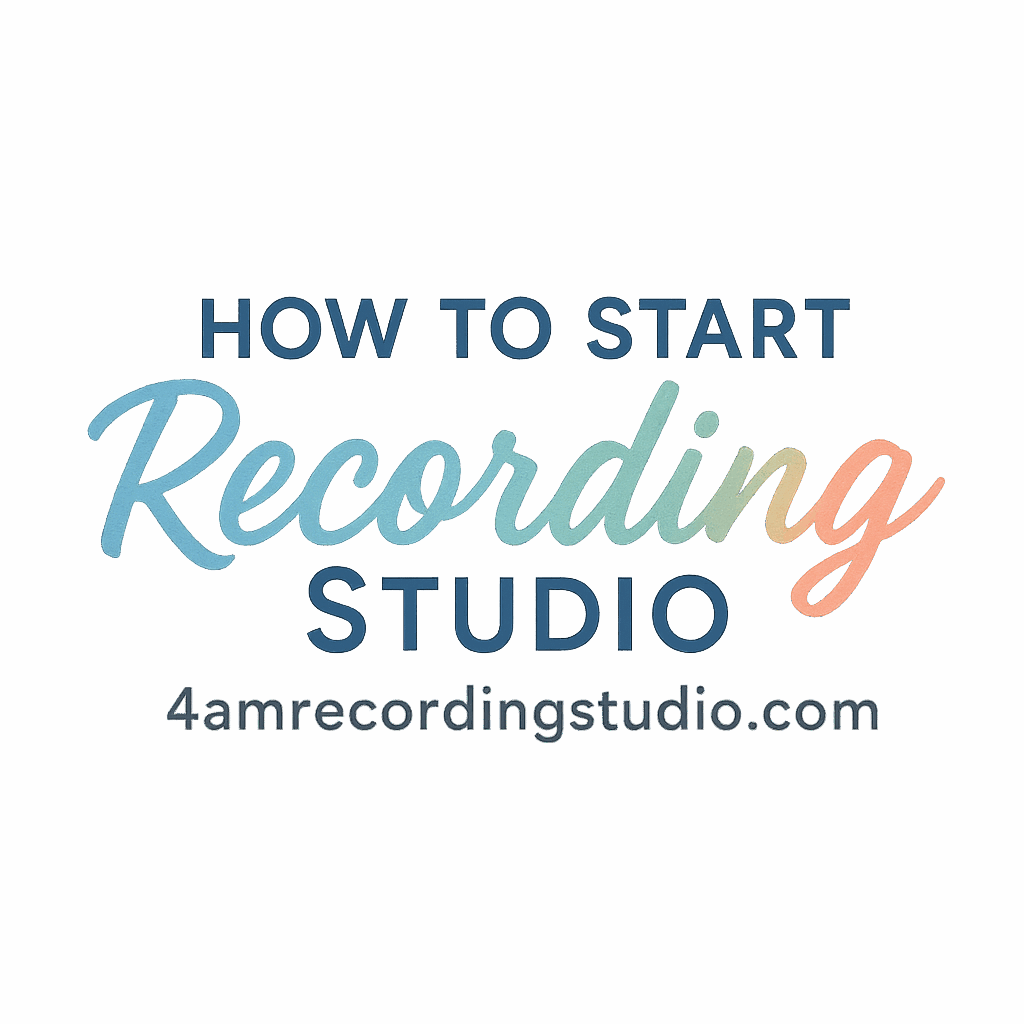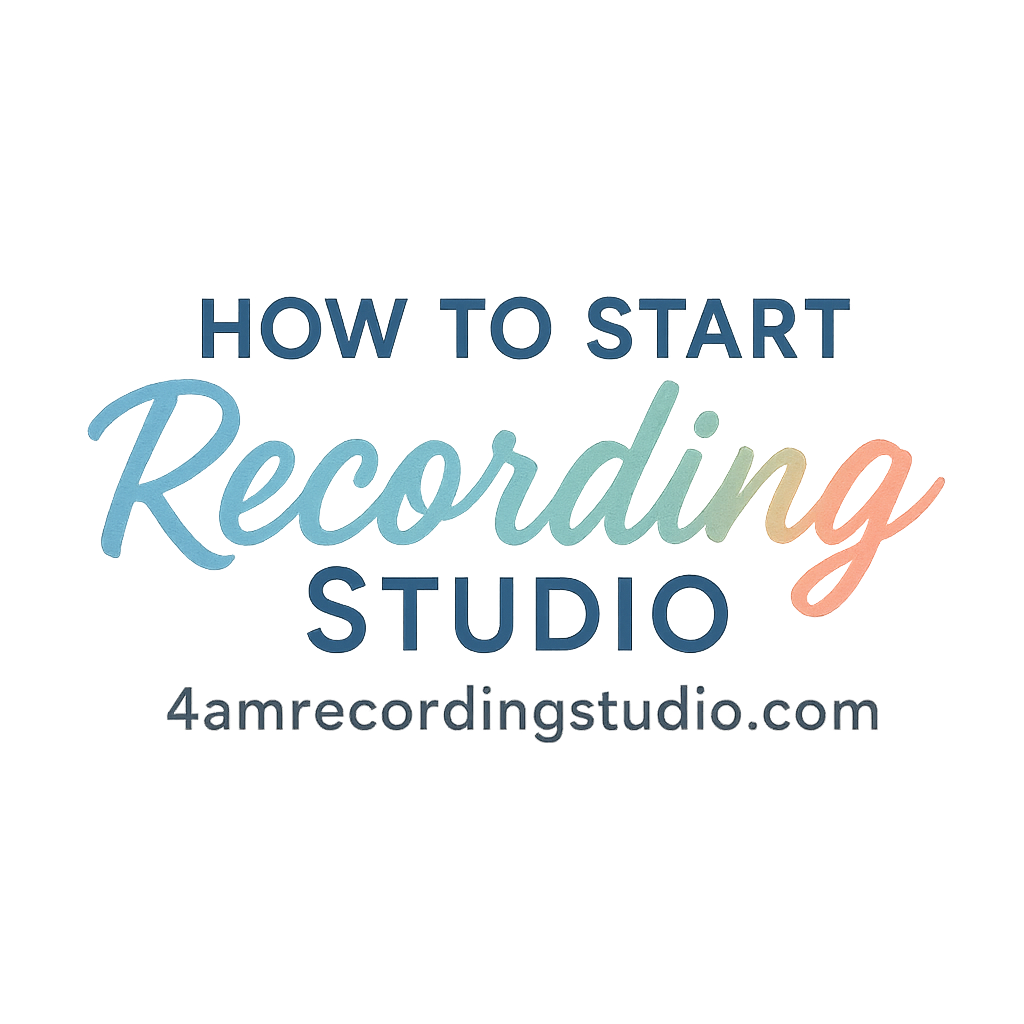If your recording studio is starting to feel like a one-person show, it’s time to expand your team. Whether you’re buried in mix sessions or constantly switching hats between engineer and marketer, building a strong team can help you grow smarter—not harder. In this post, we’ll explore six practical strategies to expand your recording studio team, along with some insights, tools, and key pitfalls to avoid.
Let’s build your dream team.
Why Team Expansion Matters in a Recording Studio
A successful studio doesn’t just run on good gear—it runs on great people.
When your recording studio grows, you eventually hit a ceiling. You can’t do everything yourself. Adding the right people lets you:
- Increase studio bookings
- Offer more services
- Improve client satisfaction
- Free up your own time for high-value work
Team expansion is a growth move. But it needs to be done right. Otherwise, you risk over-hiring, miscommunication, or even hurting your brand.
Before you bring people on board, make sure you’re clear on what you’re building.
Strategy 1: Define Roles Based on Studio Goals
Clarify Your Business Vision
First things first—what are you trying to build?
Are you running a niche studio for indie artists, or do you want to become a commercial recording powerhouse? Your vision should guide your team-building strategy.
Link your team expansion plan to your overall studio growth goals. A good starting point is reviewing your business roadmap—check out the guide on Recording Studio Business Planning.
Identify Current Gaps
Ask yourself:
- What tasks drain your time?
- Where are you turning away work?
- What services could you offer if you had help?
These answers point to your hiring priorities—whether that’s an assistant engineer, a social media manager, or a front desk coordinator.
Internal vs External Hiring
Not every role needs a full-time employee. You might outsource:
- Accounting
- Marketing
- Session musicians
Focus on strategic roles that are critical to client experience and daily studio operations.
Strategy 2: Start With Freelancers and Part-Time Help
Benefits of a Flexible Workforce
Hiring doesn’t have to mean big payroll commitments. Freelancers and part-timers give you flexibility, especially when you’re just starting out.
They help with:
- Session overflow
- Weekend coverage
- Social media content
- Mixing/mastering specific genres
You get the help you need—without the long-term risks.
Where to Find Skilled Freelancers
Try these platforms:
- Upwork (marketing/design)
- SoundBetter (audio pros)
- LinkedIn and Facebook groups
- Music production communities like Gearspace
Make sure to post in places where music professionals gather.
Vetting and Onboarding Tips
- Ask for demo reels or client references
- Use test projects before fully onboarding
- Use shared tools like Trello or Google Drive to keep things organized
Looking to build a reliable freelancer roster? Visit Recording Studio Management & Growth for more structure and tools.
Strategy 3: Hire Specialists to Elevate Your Brand
Engineers, Producers, and Technicians
As demand grows, generalists can only get you so far. Hiring specialists ensures every aspect of your service gets the attention it deserves.
Key specialist roles:
- Mixing and mastering engineers
- Vocal producers
- Audio technicians (for gear maintenance)
- Session musicians
Marketing and Branding Professionals
It’s not just what happens inside the studio that counts. You need someone telling the world about it.
A marketing hire can help with:
- Social media campaigns
- Email newsletters
- Studio branding
- Client acquisition funnels
These roles are often overlooked but massively valuable.
Internal Link: Recording Studio Marketing & Branding
Don’t miss our full guide on Recording Studio Marketing & Branding for how to brand your studio like a pro.
Strategy 4: Collaborate with Local Talent
Partnering with Artists and Music Instructors
Don’t want to commit to a full hire? Partner up.
- Collaborate with vocal coaches or instrument teachers
- Offer discounted recording packages for music schools
- Host joint events or workshops
This builds your studio’s reputation and expands your network.

Student Interns and Apprenticeships
Reach out to:
- Local universities with audio production programs
- High schools with music clubs
- Nonprofits running youth music initiatives
Interns are eager to learn and often bring fresh ideas to your sessions.
Internal Link: Recording Studio Collaboration Tips
Explore more partnership ideas under our Collaboration tag.
Strategy 5: Use Technology to Streamline Communication
Tools for Managing a Growing Team
With more people on your team, communication can get messy fast.
Use tools like:
- Slack – for internal chat
- Asana/Trello – for project management
- Google Calendar – for shared scheduling
- Airtable – for studio bookings and inventory
Keep everyone on the same page, especially during busy sessions.
Setting Expectations and Scheduling
Use written SOPs (standard operating procedures) to document how things should be done—from opening procedures to vocal comping.
Internal Link: Scheduling Tips for Studio Owners
Need to organize your calendar better? Don’t miss Scheduling Tips for Busy Studio Owners.
Strategy 6: Build a Culture That Attracts the Right People
Foster an Inclusive and Creative Environment
Your culture will either attract or repel talent.
- Is your space welcoming?
- Do collaborators feel heard?
- Are people excited to come in?
When people love the studio vibe, they naturally want to contribute more. That’s how you build loyalty.
Offer Incentives and Growth Opportunities
Even freelancers want to grow. Offer:
- Skill-building workshops
- Bonuses for client referrals
- Paid training or certifications
- Clear paths to promotion for full-timers
People are more likely to stick around when they see a future with your studio.
Mistakes to Avoid When Expanding Your Studio Team
- Hiring too many people too soon
- Bringing on friends without clearly defined roles
- Micromanaging instead of delegating
- Failing to document workflows
- Ignoring red flags during the trial period
Use each hire to make your studio better—not just busier.
Scaling Smart: When and How to Expand Further
Look at metrics before you expand:
- Are bookings increasing monthly?
- Is your gear being underused or overused?
- Are clients asking for services you don’t yet offer?
When you’re hitting capacity or losing money by not having help, it’s time to grow again.
For deeper growth tracking tips, check out Recording Studio Management & Growth.
Conclusion
Expanding your recording studio team isn’t just about hiring more people—it’s about hiring the right people at the right time. Use freelancers to stay flexible, hire specialists to add value, and build a culture that inspires. The key is to scale with intention.
By following these six strategies, you’ll be able to grow your studio without losing control of what made it special in the first place.
Ready to grow your dream team?
FAQs
1. How do I know if it’s time to hire someone for my recording studio?
If you’re turning away clients, missing deadlines, or spending more time on admin than music, it’s time.
2. What’s the best first hire for a small studio?
Start with a part-time assistant or freelancer to help with session setup, scheduling, or social media.
3. Can I build a great team without a big budget?
Absolutely. Use freelancers, interns, and collaborations until you’re ready to bring on full-time staff.
4. How can I make sure new hires fit my studio culture?
Give trial periods, set clear expectations, and prioritize communication and vibe fit—not just skills.
5. What tools help manage a growing studio team?
Use Slack for messaging, Trello for projects, and Google Calendar or Calendly for booking.
6. Should I hire a marketing person for my studio?
Yes! Marketing can increase bookings, boost your brand, and free you to focus on music.
7. Where can I learn more about running and growing a studio?
Visit 4amrecordingstudio.com and explore topics like Studio Setup Basics, Equipment & Tools, and more under tags like business, clients, growth, and management.


